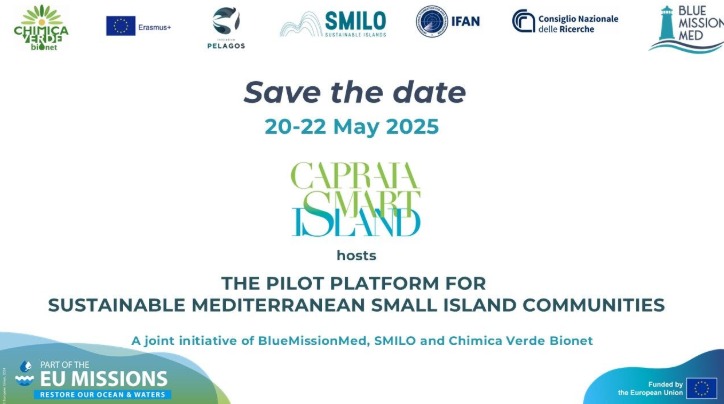Bordered by the Atlantic Ocean along 754 kilometers, Mauritania possesses one of Africa’s most promising maritime zones. Its coastline, nourished by the Canary upwelling, is a genuine fisheries Eldorado that has attracted foreign powers and industrial fleets for decades.
Yet beneath this marine abundance lie more nuanced realities: fragile governance, inequitable agreements, poorly regulated exploitation, a glaring lack of local processing, and minimal benefits for coastal populations.
Indeed, the majority of the catch leaves the country raw, without local treatment or value addition, depriving the national economy of thousands of potential jobs and additional revenues. Despite its exceptional oceanic potential, Mauritania struggles to translate this wealth into shared and sustainable prosperity.
Thus, there is an urgent need to deeply rethink Mauritania’s fisheries model through a structural, equitable, and inclusive reform — the only path to making the sea a genuine engine of social and economic development.
1. Fisheries Potential and Resource Pressure
Mauritania holds exceptional fisheries potential. In 2023, maritime production reached 1.53 million tonnes, stable compared to the previous year (IMROP Annual Report, 2024). Small pelagics (sardinellas, horse mackerels, mackerels) dominate, representing about 73% of total volume, nearly 1.12 million tonnes.
Cephalopods, mainly octopus (Octopus vulgaris), reached around 38,400 tonnes, accounting for nearly 40% of the market value of fisheries exports (SMCP, 2024). Demersal species and tunas (sea bream, groupers, red mullets, bonitos, tunas) represent about 130,000 tonnes, while crustaceans and other cephalopods add roughly 20,000 tonnes.
Since 2000, total production has increased by 76%, reflecting intensified exploitation. However, alarming warning signs are emerging: according to IMROP, over 40% of stocks are fully or overexploited. Octopus, in particular, is fished at over 70% of its sustainable biological capacity.
Furthermore, foreign fleets (European, Asian, Turkish) exploit about 70% of authorized quotas, leaving only 30% to the mostly artisanal national fleet (Ministry of Fisheries, 2022). This situation raises serious questions about both sovereignty and resource sustainability.
2. Fishing Agreements: Economic Imbalances and Fragile Governance
Mauritania’s regulatory framework has been strengthened with the Fisheries Code (2015) and Fisheries Management Plan, yet enforcement remains uneven. Opaque quota allocations, proliferation of licenses granted to foreign partners (notably Chinese, Turkish, Russian), and weak catch monitoring contribute to overexploitation and fuel illegal fishing.
The 9th EU–Mauritania Protocol (2021–2026) provides for an annual compensation totaling €57.5 million (European Commission, 2023), allocated as follows:
- €16.5 million for resource access;
- €16 million for sector support;
- approximately €25 million in fees from European shipowners.
Yet, the estimated value of catches by European fleets in the EEZ exceeds €300 million annually (FAO, 2023; IMROP, 2023), over five times the compensation amount. This sharp economic imbalance highlights an inequitable distribution of wealth.
According to IMROP (2023):
- 70.1% of quotas are exploited by European vessels;
- less than 1.9% of catches are landed on Mauritanian soil;
- less than 5% of products are processed locally.
Moreover, the annual €16 million sector support lacks transparency regarding management and real impact (Sid’Ahmed Ould Abidine, 2023).
Governance remains fragile, characterized by:
- opaque license allocations;
- proliferation of licenses granted to non-European fleets;
- partial enforcement of the Fisheries Code;
- insufficient monitoring of catches and landings (Ministry of Fisheries, 2023).
3. Artisanal Fisheries: A Neglected but Strategic Pillar
Artisanal fishing employs nearly 20,000 fishermen and sustains over 60,000 people, mainly in coastal communities (Ministry of Fisheries, 2024). Despite its socio-economic importance, it remains marginalized and vulnerable.
Major obstacles include unfair competition from industrial vessels, limited access to landing infrastructure (notably Nouadhibou, Tanit, Ndiago), an aging fleet, and poor product valorization due to lack of cold chains and modern preservation methods.
The Mauritanian Shipyard (CNM), intended to support fleet renewal, operates below capacity. Its annual output, estimated between 30 and 50 units, falls far short of national needs due to outdated equipment, chronic underfunding, and lack of institutional support for its industrial strategy.
Furthermore, women—who perform over 70% of post-catch activities (processing, drying, marketing)—work under precarious conditions without suitable infrastructure or recognized status. Their organization, access to modern facilities, and targeted institutional support are essential for effective inclusion in sector reforms.
4. National Value Added Diluted
The Mauritanian Fish Marketing Company (SMCP), a key sector player, plays a central role in export and commercialization. Despite this strategic position, SMCP faces major challenges linked to weak local integration and lack of modern processing infrastructure.
Mauritania remains primarily an exporter of raw fish, with less than 12% of fisheries products processed locally. In 2023, fishmeal plants processed about 150,000 tonnes of fish, producing 25,000 tonnes of fish oil, mainly exported to China and other Asian markets (AMPEM & Greenpeace Africa, 2024).
This marketing model favored by SMCP contributes to diluting benefits for the national economy and limits the creation of high value-added local jobs. It also results in wasting essential nutritional resources, while 70% of Mauritanian children in rural areas do not consume fresh fish at least once a week (FAO & WFP, 2023).
5. Economic Contribution: A Largely Underexploited Potential
SMCP collects nearly $300 million USD annually in taxes, fees, and exports. This revenue illustrates the sector’s strategic importance but is accompanied by problematic governance limiting traceability, transparency, and equitable revenue redistribution.
The organization remains non-digitized, restricting operational traceability. Clientelist practices affect recruitment and promotions, weakening internal governance. Customer service is inadequate, corporate communication almost nonexistent, and no innovative project enables modern product valorization.
Less than 15% of resources are allocated to local communities or port infrastructure development (Ministry of Finance, 2024). Despite its central role, SMCP struggles to drive local transformation, thus limiting the sector’s economic and social contribution.
Though symbolically important, fisheries represent only 6.3% of GDP, about $720 million USD, equivalent to 40% of total exports, compared to 25% for mining, which generates $2.9 billion USD and 63% of exports.
6. Inland Fisheries: Forgotten and Marginalized
River and inland fisheries, though economically marginal, play a vital role in Gorgol, Brakna, Guidimakha, and Trarza regions. However, they remain absent from structured public policies.
In 2023, less than 2% of the Ministry’s budget was allocated to this subsector (Directorate of Inland Fisheries). No modernization or equipment programs were financed for river canoes, exacerbating local fishermen’s vulnerability.
7. Challenges and Perspectives for Sustainable Reform
To overcome fragmented governance and rent-seeking logic, the entire fisheries value chain must be rethought. Key structural measures to consider include:
- Independent audits of fishing quotas with annual public reporting;
- Strengthening monitoring and control systems (MCS), including drones and satellites;
- Mandatory local processing of at least 30% of catches within five years;
- Enhanced support for artisanal fisheries: access to credit, equipment, and suitable infrastructure;
- Nutrition education programs to reintegrate fish into the national diet;
- Reform of international agreements to guarantee priority access for national fishermen and full catch traceability.
Conclusion
Mauritania stands at a crossroads: a sea rich in fish but poor in sustainable policies.
Despite one of the world’s richest fishing coastlines, Mauritania remains locked in an extractive model benefiting mostly others. The sea can feed, employ, and transform territories — provided the sector’s governance is radically changed.
The challenge is as political as economic: asserting sovereignty over resources, making artisanal fishermen and women processors visible, and ensuring benefits reach coastal communities.
The country must break away from « fisheries rent under foreign perfusion » and build maritime economic sovereignty based on local processing, innovation, traceability, and fairness. This change demands vision, courage, and inclusion — especially of youth from communities historically marginalized due to labor and ancestry (CDWD).
At sea, as in politics, those who do not steer the helm will be swept away by currents set by others.
Source: cridem




